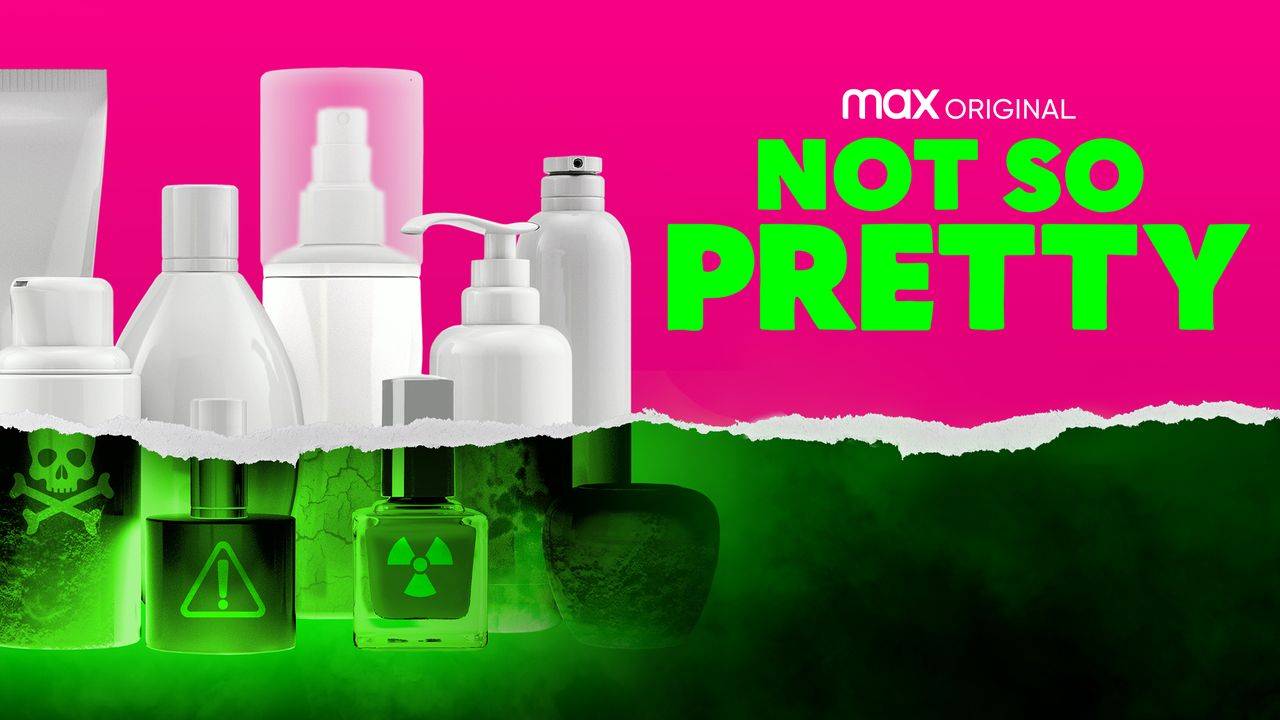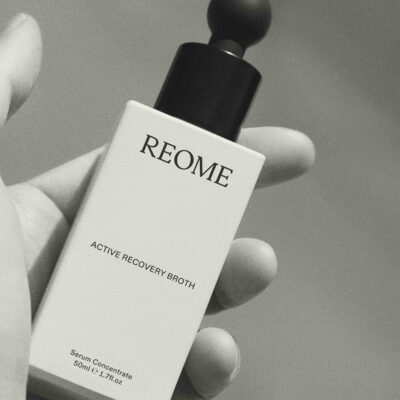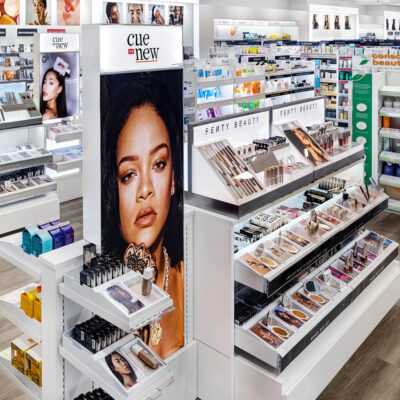
Beauty Industry Insiders Review HBO Max’s Docuseries “Not So Pretty”: Is It Fearmongering Or Informative?
Last month, HBO Max released “Not So Pretty,” a four-part docuseries exploring the “ugly” side of the beauty industry. According to the publication Glossy, following its premiere, a #notsopretty hashtag popped up on TikTok and racked up almost 20 million views. The accompanying content shows people throwing away beauty products in response to watching the episodes of “Not So Pretty,” which delve into the haircare, nails, makeup and skincare categories.
Meanwhile, over on Instagram, cosmetic chemist and BeautyStat founder Ron Robinson posted a video criticizing the docuseries for what he considers fearmongering. We were wondering if his views are widely shared by beauty industry insiders. So, for the latest edition of our series posing questions relevant to indie beauty, we asked 10 beauty brand founders and cosmetic chemists the following question: What did you think of HBO Max’s “Not So Pretty” docuseries?
- Kelly Love Co-Founder, Branch Basics
I don’t believe ["Not So Pretty"] is fearmongering at all. It’s definitely hard to hear that products we trusted as safe are not necessarily so, and it can be difficult to digest that industries and government agencies are not protecting consumers the way they should be or we think they might be, but it's not better to live in denial or ignorance when that can lead to unnecessary suffering for us or our families.
When we’re open to hearing the hard truths about the toxic chemicals we’re bombarded with on a daily basis, we open ourselves up to greater opportunities for preventing and healing disease. That’s the opposite of fear, it’s freedom and empowerment. It’s faith in our body’s capability to function the way it’s made to function, which can only happen when the toxic body burden these products contribute to is significantly reduced or completely removed.
- Ron Robinson Cosmetic Chemist and Founder, BeautyStat
Intent matters, and I think the series lacked balanced reporting and objectivity. It painted the picture that all beauty companies are evil, but I wish it acknowledged that beauty companies do a lot of good, too.
Our goal is to make products that serve a purpose and fill a need, not cause harm. If a company does cause harm, they need to quickly reformulate with safe products.
- Marilee Nelson Co-Founder and Environmental Consultant, Branch Basics
"Not So Pretty," the HBO docuseries, is an eye-opener and wake-up call. We should spread the word and promote this series to the American public. People are suffering, spending time and money searching for cures and alleviation of symptoms when often the answer is just in identifying and removing products with harmful chemicals from our homes.
America is facing an emergency healthcare crisis that impacts us all. Over 50% of American adults and children have a chronic illness. The statistics for adults and children are startling. Asthma, autism spectrum disorders, ADD/ADHD, allergies, learning disabilities, childhood depression and obesity are increasing at alarming rates. Cancer is the No. 2 killer of children after accidents. We are losing our children.
One in two men and one in three women are projected to get cancer by the American Cancer Society. We are not winning the war on cancer. The rates of degenerative diseases such as ALS, MS, Alzheimer's and Parkinson's are skyrocketing.
The most staggering part is that these disorders are being shown to have something in common: Exposure to toxic chemicals. Scientific studies directly link this exponential rise in chronic illness to exposure to harmful chemicals in our products, air, water, food, homes, schools and workplaces.
Unfortunately, it takes time for scientific research to filter down, be understood and applied by industry. Also, we don't have time for this information to be digested, figured out and accepted by our healthcare system. The public needs to be made aware and understand this so we can act now and protect ourselves.
If we really understand the stark truth that we are all being poisoned, we can change the industry at the cash register with our refusal to buy toxic products. It is time for an uprising! We can take proactive preventive care of our health!
- Sylwia Wiesenberg Founder, Bawdy Beauty
The show is definitely an eye-opener to millions of consumers who are not well informed on ingredients, especially the most harmful ones like asbestos, and it educates a majority of poorly informed consumers that there are safe alternatives to their favorite beauty products. The show is impactful and gives consumers general industry overview from dirty ingredients to packaging that should be avoided.
I don’t believe the show’s intention is to promote fear of the beauty industry. Quite the opposite, it provides basic education to all beauty lovers. The show superficially covers only a few harmful ingredients and supports its hazard with lawsuit cases.
I think it is a good start for people who don’t understand clean beauty terms, and they can dive deeper and get educated further if they wish.
- Marta Pazos Cosmetic Chemist, Rejuvalift Beauty
Consumers and the beauty industry need a docuseries like this. Those who are ignorant of ingredients in the products they purchase need to be better educated. More education will lead to more informed purchasing decisions, which in turn could influence the industry to consider making safer choices of ingredients and packaging.
The use of cosmetics is, for many consumers, an answer to a prayer, a delivery of a promise, a glimmer of hope for those who wish to stay looking young longer. They want to look more beautiful or desirable and, ultimately, be happier. And with so much at stake, people want to believe often times throwing reason and logic out the door.
Many people don’t know that the largest organ of the human body is skin. And unlike other organs that may benefit from ingesting vitamins and supplements, skincare products are applied directly on the skin. As such, there is potential danger associated with the presence of certain ingredients.
Many “ugly truths” involving ingredients and their origins, including unfair trade, ecosystems destruction and inhumane practices, are left undisclosed. A general lack of proper usage and a product’s applications go unstated. However, there is also the chance that safe ingredients will end up on the “blacklist” because of undocumented manufacturing methods and suspicious sourcing practices.
The marketplace has embraced a marketing trend toward labeling beauty products as “natural” and “organic.” In many cases, these terms are mistakenly used interchangeably. These terms have become buzzwords for a marketplace that is willing to pay premium prices for natural and organic products.
Until proper regulation is put in place, organizations like EWG and docuseries like “Not So Pretty” will help consumers understand more about the “not so pretty” realities of an industry that speaks to two very sacred components of our lives as humans—health and external appearance—both of which are intimately related to our overall well-being.
Providing more education to consumers about what ingredients are safe, how some packaging can have a negative impact on our environment and which products can actually make a difference will be very helpful to those that seek the truth. On the flip side, the beauty industry must assume a responsibility toward disclosure.
One way to compel manufacturers toward this is to get input from qualified experts who will focus on relevant topics that go deeper into safety. However, experts are concerned about being crushed or canceled if they participate in exposing the ugly truths. In some ways it is a yin and yang, where truth and dishonesty lie side by side perhaps giving rise to each other as they interrelate.
However, no argument will be credible unless the source is vetted and properly quoted, right? But how do we resolve that dilemma? Getting more qualified experts to come forward is necessary, but might possibly be the biggest challenge of all. Rigor and science may just be the answer.
- Krupa Koestline Founder and Cosmetic Chemist, KKT Consultants
I found the docuseries informative, yet on the edge of fearmongering. I am a cosmetic chemist and have been in the natural, clean beauty sector for over a decade. I very much agree with the docuseries' point of view and its attempt to educate the consumer regarding the potentially harmful effects of ingredients in cosmetics.
There is a lot of misinformation, opposing point of views and opinions in the beauty industry over safety because of a lack of regulation and oversight; so I have appreciated the conversations the documentary has helped spark. However, the docuseries does sensationalize the topic, which almost always comes at the expense of scientific validity.
In the hair episode, for example, they give an example of a woman who had an itchy scalp, started losing hair, struggled with anxiety and memory loss, and even delayed speech. It cannot be conclusively said that all of these issues were related to the DevaCurl product she was using. Yet, the docuseries implies that these were a result of the product use, which I think is quite on the edge of fearmongering.
- Alisa Metzger Co-Founder, INNBeauty Project
The film sheds light on issues relating to regulations and the beauty industry. I hope it encourages consumers to dig deeper, ask questions and read the ingredients of their beauty products. We cannot take "safety" of beauty products for granted and often companies toe a gray line when it comes to unsafe ingredients.
Unfortunately, until there is stricter regulation, the responsibility falls on the consumer to learn more. As a founder and mom of three, I look at every formula and every ingredient to make sure it’s safe because, for me, it’s personal.
- Sejal Patel Founder, Plantkos
The FDA does not need to nor should it regulate the beauty industry to the extent it does the pharmaceutical industry because the costs associated with it cannot be absorbed by the industry. Having spent 15 plus years in biotech, I know firsthand the amount of time and money that goes into developing and bringing one drug to the market, it’s in the millions.
The beauty industry is not equipped to nor does it need to go through such a rigorous process, but it is capable of implementing safety standards in its product development process. However, in order to accomplish this, evidence-based and government (not private company or lobbyists) requirements on avoidance of harmful substances [are] necessary.
There is also a need for guidance on how to test products' safety and a requirement to register every beauty product sold in the United States. Indie beauty brands along with retailers such as The Detox Market and Credo are already leading the way in raising the safety standards for beauty products, but they need support from the legislative branch to help make these standards a rule and not the exception.
The rate at which the beauty industry is growing and consumers demanding transparency about the products they use, I believe this is the right time for this much-needed change.
- Sara Pirok Co-Founder, Carter + Jane
The series did a good job of laying out the facts on a few of the really toxic ingredients still used by many beauty companies today along with starting the much-needed conversation about the hidden dangers of the industry. They effectively illustrate the devastating effects of these toxic products by sharing the real-life stories of consumers paying the price with their health.
For anyone to call this fearmongering is ludicrous and as insane as tobacco executives that once claimed cigarettes don't cause cancer. If anything, I might argue "Not So Pretty" could have pushed it a little farther, as it only scratched the surface. Every beauty industry executive absolutely knows that many of the ingredients used in their formulas are potentially dangerous, but they are simply more concerned with profits than the health and safety of their consumers.
- AJ Addae Founder and Principal Chemist, Sula Labs
As a chemist, the challenge that I commonly see in the conversation around clean beauty is finding that fine line between transparency in the beauty industry and what we know as “chemophobia” or the general fear of chemicals.
For me, formulating can be a balancing act of seeing the validity in ingredients that the science industry has traditionally noted as effective (such as parabens, physical sunscreen filters, and so on), while also taking into account this very real concern about reforming what we put in and on our bodies. I think this is because the Western beauty industry is historically so rooted in pushing material that first and foremost drives profit. We're trying to move past that now, and it shows.
The documentary does a great job of displaying some of the beauty industry's biggest pain points when it comes to serving our consumers ethically. However, consumers shouldn't be made to feel afraid of every single thing they put on their skin, hair and nails.
I don't think fearmongering for the sake of fearmongering is a useful tool for change. Empowerment is useful—empowering the consumer to be listened to, and giving people affordable, accessible choices for what they put in and on their bodies.
Furthermore, what I wish I heard more about is how much this current and next generation of beauty entrepreneurs cares a tremendous amount about the health and safety of consumers. "Clean" isn't even just a buzzy a trend anymore, it’s a growing industry standard and, for many, a way of life, and I think a lot of options on shelves these days contribute to that.
If you have a question you’d like Beauty Independent to ask beauty entrepreneurs, executives and experts, please send it to editor@beautyindependent.com.






Leave a Reply
You must be logged in to post a comment.